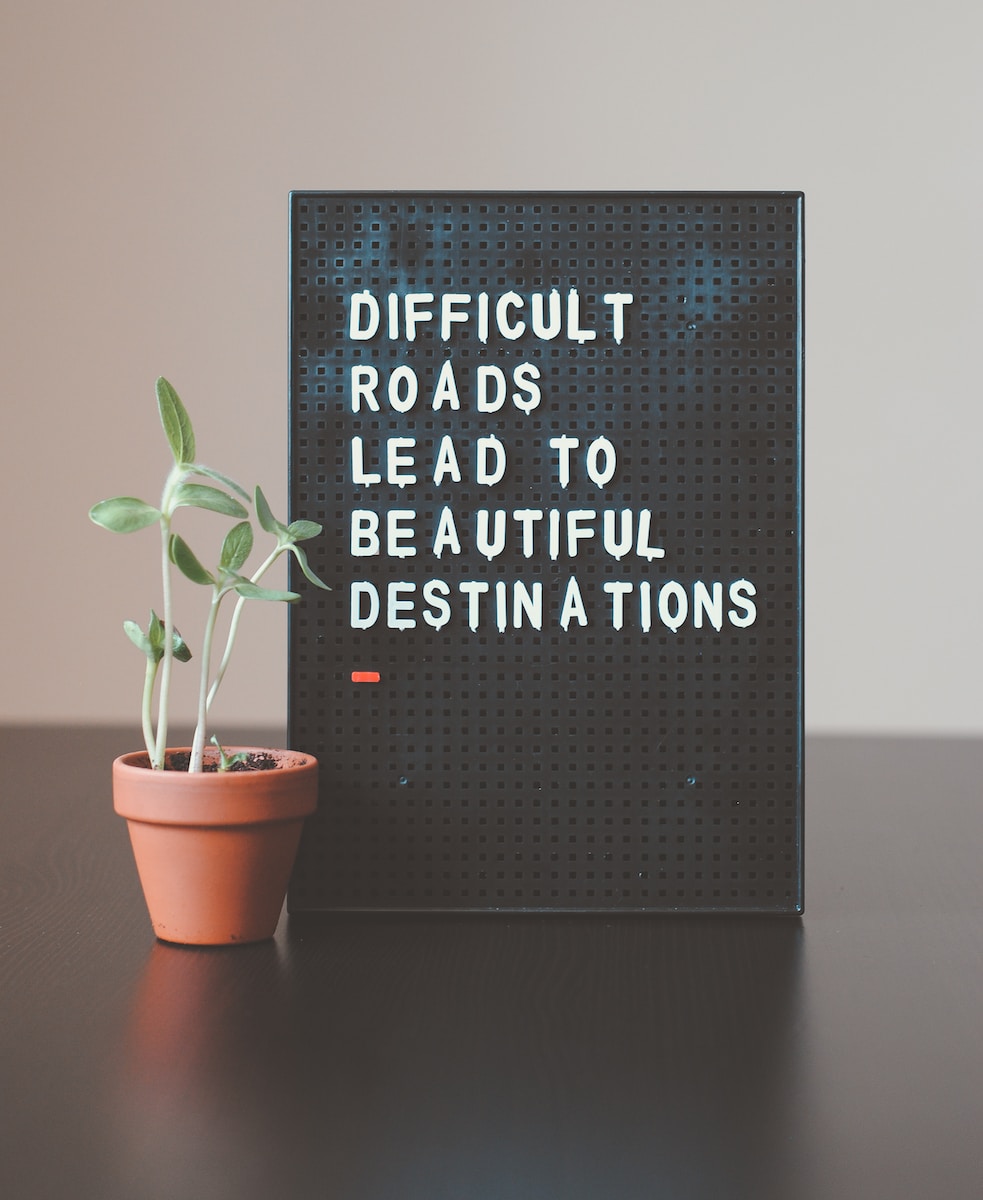Did you realize that the average person has more than 60,000 thoughts per day? That’s a significant amount of mental activity, and it can be challenging to process all of these thoughts. Prioritizing self-care is a crucial aspect of self-awareness and contemplation, as it enables us to understand ourselves better. By engaging in reflective practices and introspection, we can identify our core values and beliefs while enhancing our emotional intelligence. Self-discovery not only benefits us individually but also those in our lives, as knowing our authentic selves allows us to live with greater intention and purpose.
Self-love is essential in order to take care of ourselves both physically and mentally. It involves accepting yourself unconditionally – flaws, weaknesses, strengths and all – without judgment or comparison to others. When we practice self-compassion instead of harsh criticism, we create space for growth rather than stagnation. This fosters greater resilience when life throws curveballs in our direction. As we embrace this journey within ourselves, we open doors for deeper connections with loved ones around us too.
Self-Compassion
Self-compassion is an incredibly powerful tool for learning about yourself and your needs. It involves being mindful of how you respond to difficult situations, taking a nonjudgmental attitude towards yourself and recognizing that everyone makes mistakes. Self-compassionate behavior allows you to forgive yourself when things don’t go as planned or are not perfect; accept the reality of who you are and all the parts that make up your identity, including flaws; love yourself unconditionally even if you feel like you have failed; be kind to yourself in times of need and recognize that no one is perfect. Taking care of oneself with self-compassion can help us learn more about ourselves by increasing our understanding of our own needs, feelings, strengths, weaknesses and goals.
When we practice self-compassion, it helps create an environment where we can nurture ourselves without judgement or criticism. This sets a precedent for healthy relationships with others because it encourages us to extend compassionate behaviors outwardly rather than focusing on negativity or judgment from other people. Practicing self-nurturing behaviours such as creating boundaries around what tasks we take on throughout the day, setting aside time for relaxation activities and engaging in positive affirmations allow us to better understand our limits which leads to greater insight into ourselves and what works best for us overall.
Self-Nurturing Behaviours
Self-nurturing behaviours are activities that can be used to promote self-care, self-love and self-reflection. They allow us to take care of ourselves in a sustainable way, by giving our mind and body the attention it deserves. By engaging in these practices we can gain insight into how we think, feel and behave – allowing us to better understand ourselves.
There are many ways to nurture yourself each day; here are some simple yet effective strategies:
1) Make time for yourself – dedicate at least 5 minutes of your day for solo reflection or meditation.
2) Exercise regularly – find an activity you enjoy doing (e.g., running, yoga, swimming etc.) and make it part of your daily routine.
3) Pamper yourself – indulge in beauty treatments such as manicures/pedicures or treat yourself to a massage once in a while.
4) Get creative – spend time on crafts or hobbies that bring out your artistic side.
5) Eat healthily – nourish your body with nutritious foods that will give you energy and leave you feeling satisfied.
6) Connect with nature– go outdoors and appreciate the natural world around you; listening to birds singing or watching clouds drift by can provide peace of mind.
7) Spend quality time with friends & family – connect with people who support, uplift and encourage you.
8 ) Unplug from technology – set aside some time away from screens so you can relax without any distractions .
9) Practice gratitude– write down three positive things about your life every morning before starting your day ; this will help put things into perspective when times get tough . 10) Give back– volunteer your time helping those less fortunate than you; seeing the joy experienced through acts of kindness is truly rewarding .
By implementing even just one of these strategies into our lives , we can cultivate greater levels of self-care , love , appreciation , understanding , respect for ourselves and others – all essential components for living a more fulfilling existence .
Self-Respect
We all have the right to be respected by others, but what about respecting ourselves? Self-respect is a key component of taking care of oneself and can often be overlooked. Respect for yourself means having inner worth, valuing your choices, and treating yourself with kindness and respect. By developing self-respecting behaviours you can learn more about who you are and how to take better care of yourself.
Self-respect begins with accepting responsibility for who you are and acknowledging that no one else has control over your life except for yourself. It also involves understanding that not everyone will like or agree with your decisions, but that doesn’t make them any less valid. Being self-respectful means setting boundaries when necessary, saying ‘no’ when something isn’t comfortable for you, and being honest in your thoughts and actions. This allows us to stay true to our values while still maintaining our sense of self-worth.
Cultivating an attitude of self-acceptance helps us develop higher levels of confidence in ourselves which can lead to feeling empowered in both small and large ways. Practicing self-compassion gives us permission to forgive ourselves when we make mistakes without beating ourselves up unnecessarily; it teaches us resilience in times of challenge rather than succumbing to feelings of unworthiness or guilt. All these qualities allow us to recognize our worth as individuals so we can live healthier lives both mentally and physically.
By examining our behaviour through the lens of self-respect we gain insight into how important it is for us maintain healthy habits throughout our lives.
Habits Of Healthy Living
Taking care of yourself can help you learn valuable information about who you really are, and how to live a healthier life. A healthy lifestyle requires regular physical activity, nutritious meals, self-care habits and mindful living.
Here’s a bullet point list of the top 10 things we can learn from taking better care of ourselves:
- Eating healthy foods helps us become more aware of our body’s nutritional needs.
- Exercise routines give us an outlet for releasing stress and promoting mental clarity.
- Self-care habits such as getting enough sleep, engaging in relaxation activities or practicing meditation can help us manage difficult emotions and stay balanced during times of uncertainty.
We also need to be mindful when it comes to making decisions about our health and wellbeing. Learning to balance work with leisure time is essential for maintaining energy levels throughout the day. Additionally, developing positive relationships with friends and family members can provide support during challenging moments in life. Lastly, setting realistic goals allows us to focus on what truly matters while staying motivated towards achieving them.
By cultivating these habits of healthy living, we gain insight into our own values, strengths and weaknesses – allowing us to make informed choices that benefit ourselves in both the short term and long run. Mental health and wellbeing go hand-in-hand with physical well-being; thus understanding how best to take care of ourselves will ultimately lead to improved overall health and happiness.
Mental Health And Wellbeing
When it comes to taking care of yourself, there are many things you can learn about yourself. Here are the top 10:
1) Mental Health | Developing healthy habits is key for maintaining good mental health. Taking time for self-care and incorporating mindful living into your daily routine will help keep stress levels low and promote a more balanced lifestyle.
2) Self Awareness | Being aware of how you think, feel and respond in different situations helps you better understand yourself and make informed decisions that honor who you are.
3) Wellbeing | It’s important to identify what makes you feel happy, fulfilled and energized since this will be helpful when finding activities or tasks that bring joy into your life.
| Physical Activity | Meditation | Social Connections |
|---|---|---|
| Exercise regularly | Practice breathing | Make time for friends |
| Eat nutritious food | Mindful Activities | Reach out to family |
| Get adequate sleep | Journal Writing | Join online forums |
4) Balance & Protection | Making sure we strike an equilibrium between work, rest, leisure activities and relationships with others protects us from overworking or overexerting ourselves which can lead to burnout or illness. 5) Stress Management Strategies Knowing how to cope with challenging emotions like anger or frustration is essential if we want to maintain our wellbeing. Identifying effective strategies such as deep breathing or positive affirmations empowers us by teaching us how to regulate difficult emotions rather than avoiding them altogether. 6) Values Clarification Knowing the values which guide our lives helps prioritize our goals and motivations so that we’re working towards something meaningful instead of feeling lost in a sea of uncertainty. 7) Personal Strengths Acknowledging personal strengths gives us a sense of confidence knowing that we have unique gifts which allow us to contribute positively in various aspects of life whether it’s at home, school or work. 8) Prioritizing Needs Understanding basic needs like food water, shelter etc., allows us to recognize where these need attention first before turning towards other areas needing improvement 9) Adaptability Adopting an attitude of flexibility enables us to adapt quickly in ever changing environments without becoming overwhelmed 10 ) Reflection Regularly reflecting on recent experiences builds insight allowing us trace patterns helping gain clarity around what works best for us moving forward.
Understanding stress levels plays an integral role in managing overall wellbeing therefore examining why they arise along with ways they can be managed effectively is equally important
Understanding Stress Levels
The elephant in the room is stress. It lurks around us, creeping into our lives like a silent predator and can leave us feeling exhausted and overwhelmed if we don’t take care of ourselves. Understanding your own stress levels and how to manage them is essential for maintaining good mental health. Here are ten things you can learn about yourself from how you take care of your stress:
1) How aware you are of your triggers – do certain people or situations cause more stress than others?
2) What areas of life need extra attention – what activities help you relax and restore balance?
3) Your coping mechanisms – when faced with stressful situations, which strategies work best for calming down?
4) When it’s time to step away – learning to recognize when it’s time to pause, regroup and recharge.
5) Effective communication skills – understanding how to express yourself clearly so that both parties feel heard.
6) Regular self-reflection – taking time out each day to check in on your thoughts and feelings.
7) Identifying unhealthy habits – recognizing patterns that lead to negative behavior such as procrastination or avoidance.
8) Knowing when to seek professional help– being able to ask for support if needed without fear or shame.
9) Healthy boundaries – having clear personal limits that keep relationships balanced and respectful.
10) Self-compassion – showing kindness towards oneself during times of difficulty instead of criticism or judgement.
By paying attention to these aspects of managing stress, we become better equipped at handling difficult moments with greater ease and resilience while developing healthier ways of looking after ourselves both mentally and physically. As we understand our own unique needs, we become empowered with the strength necessary for dealing with whatever comes our way in life; allowing us to move forward confidently towards achieving our goals. With this newfound knowledge, let’s explore further by delving into the important topic of time management!
Time Management
Time is a precious commodity, and managing it efficiently can help us to maximize our potential. Being conscious of how we use our time allows us to make better decisions about the activities that will lead to greater success in both our personal and professional lives. Here are some tips for improving your time management skills:
- Prioritize tasks based on importance rather than urgency – by focusing first on those tasks with the most impact or value you can ensure that you stay productive even when faced with multiple deadlines.
- Break down larger projects into smaller chunks – this makes them more manageable, as well as helping you to identify any areas where further research or resources may be needed.
- Work smarter, not harder – focus on efficiency over volume; by making small tweaks to your workflow such as automating repetitive tasks you can save yourself valuable minutes each day.
These simple changes in habits can have an immediate positive effect on productivity levels, allowing for more quality work within shorter periods of time. With effective time management comes improved stress levels too, since there’s less pressure to complete things before certain deadlines. Leveraging these strategies will also enable increased focus and clarity which helps uncover new opportunities for growth and development. By taking control of our own schedules, we create an environment where learning from experiences becomes easier — setting ourselves up for long-term success! To continue developing healthy self-care practices it’s important to learn how to set personal boundaries…
Personal Boundaries
It is estimated that about 90% of us have difficulty setting personal boundaries, which can lead to a lack of self-protection and assertiveness skills. Therefore, understanding how you take care of yourself involves learning how to set limits with your time and energy in order to maintain healthy relationships and respect for your own needs.
In terms of boundary setting, it means recognizing when someone or something is asking too much from you. This could be anything from saying “no” to requests at work or drawing the line between a friend who has become too demanding. It also includes being aware of triggers that make you feel uncomfortable so that you can avoid situations where those feelings arise in the first place. Additionally, it is important to understand what your physical boundaries are such as not allowing someone else to hug or touch you without consent. All these strategies help ensure that we are staying true to ourselves and taking appropriate steps towards self-preservation.
At the same time, it’s essential that we don’t forget our limitations while still preserving our safety and peace of mind. Learning how to balance this fine line will help us develop healthier relationships with others while ensuring that we honor our own needs along the way. In other words, creating clear personal boundaries allows us to protect ourselves while remaining open minded and compassionate toward others – two qualities key for successful communication and meaningful connections in life.
From understanding how best to manage our time demands down to knowing when enough is enough, developing an appreciation for what we have within ourselves helps create a deeper level of self-awareness so vital in cultivating inner well-being. Appreciation for one’s existence leads into insight on values and purpose in life – topics explored further in the subsequent section about ‘meaningful living’.
Appreciation For What You Have
Appreciating what you have and taking the time to recognize your blessings is an important part of self-care. It’s easy to get caught up in negative thoughts or feelings, but it’s essential to take a step back and try to appreciate all that life has offered us—even if we don’t always see it right away. Practicing gratitude for moments throughout our day can help shift our perspectives from lack to abundance and open our hearts to accepting ourselves as we are.
Recognizing how much there is in life that we should be grateful for can bring about a sense of contentment with who we are and where we are at this moment in time. This doesn’t mean that everything is perfect, but rather than focusing on what we don’t have, valuing our lives for their potential helps us better navigate any struggles or hardships. Appreciation isn’t just something that happens when things go well; showing appreciation even during difficult times serves as a reminder that it won’t last forever.
Being able to find some sort of joy or acceptance within challenging situations allows us to move forward more quickly with grace and resilience. Cultivating an attitude of appreciation helps us stay focused on the good instead of getting stuck in cycles of worry or fear. Doing so will provide comfort during troubling times while also helping us grow into healthier versions of ourselves each and every day. With these practices, we can start creating habits which foster self-love and lead towards a life full of purpose and meaning.
Practicing Gratitude
Gratitude is a powerful tool for unlocking inner peace and contentment. When you practice gratitude, you are taking the time to appreciate yourself and all that life has to offer. By expressing gratitude, you open up more room in your heart and mind for joy and happiness. Taking part in a regular gratitude practice can help you learn about yourself by recognizing what brings you joy, being mindful of how others impact your life, and understanding how to be thankful even when things feel difficult or overwhelming.
One way to deepen your connection with gratitude is through journaling. Reflect on moments where feeling grateful was easy – like spending time with family or friends, appreciating nature, or simply enjoying an activity that made you happy. Then take some time to think deeply about those experiences. What did they bring out in you? How did it make you feel? Use these reflections as an opportunity to dive deeper into self-exploration while also cultivating appreciation for the present moment.
Another way to express gratitude is through speaking affirmations out loud each day. Start by saying something simple such as “I am strong” or “I am capable of achieving my goals” then gradually add other positive statements such as “I appreciate myself” or “I trust in my abilities” until eventually creating a list of affirmations that resonates with who you are at this very moment in time. Through this daily practice, not only will your confidence grow but so too will your overall sense of wellbeing – allowing you to gain insight into yourself from the comfort of self-acceptance and love.
Accepting Your Strengths And Weaknesses
Now that you’ve taken the time to practice gratitude, it’s essential to accept your strengths and weaknesses. This can be difficult because many of us tend to focus on our shortcomings rather than recognizing our positive traits. However, if we take care of ourselves through self-acceptance, strength-building and accepting weaknesses as part of who we are, then we will develop a better understanding of ourselves.
The first step in this process is identifying your strengths. These may include physical abilities such as running or playing an instrument; intellectual capabilities like problem solving or writing skills; emotional qualities such as empathy for others or personal resilience; or creative talents like drawing or painting. Making a list of these attributes can help remind you just how capable you are and give you confidence when facing challenges ahead.
It’s equally important to recognize our limitations too. It might not always feel easy but acknowledging areas where we need more work allows us to grow and learn from mistakes. We should never judge ourselves harshly – instead use acceptance and kindness towards yourself so that even if something doesn’t quite go right, there’s always room for improvement next time around.
Understanding what makes us unique helps us appreciate ourselves fully and become more aware of which aspects of life bring us joy – whether it’s spending time with family or honing a specific skill set. Taking care of yourself by doing things that make you feel good is the key to learning about who you really are!
Learning From Mistakes
According to a study by the American Psychological Association, 70% of adults have made mistakes in their lives that they regret. Learning from our mistakes is key for us to become successful and reach our full potential. Mistakes are not only inevitable but also crucial for growth and development.
Failure can be daunting and it might even make us feel like giving up. However, if we accept our mistake(s) and take responsibility for them, then failure will no longer seem so intimidating. It’s important to acknowledge what went wrong or why you acted mistakenly so that you can learn from the experience and move on with greater self-awareness. By understanding where your own limitations lie and taking steps to improve on these weaknesses, you can create positive change within yourself which will ultimately lead to personal growth. Additionally, embracing failures makes learning easier because it allows individuals to look more objectively at their performance without fear of judgement or criticism from others – this helps build confidence in oneself as well as resilience against future unsuccessful attempts.
We should remember that every mistake teaches us something valuable; whether its patience, humility, or perseverance – whatever lesson we need to learn most is likely contained within the error itself. Understanding the importance of making mistakes enables one to adopt a healthier attitude towards life’s challenges; it allows us to focus less on perfectionism and instead prioritize ourselves over external expectations.
Prioritizing Yourself
Making mistakes is an inevitable part of life. And learning from them and growing as a result can be a powerful tool for personal development. However, sometimes we need to take a step back before taking that next big leap forward in our lives. This means prioritizing yourself and the self-care practices you use to nurture your body and mind.
When we prioritize ourselves, it’s not just about putting ourselves first or having time alone – though these are important factors too. It’s also about being mindful of how we treat ourselves mentally and physically on a daily basis. Are you allowing yourself enough rest? Are you engaging in activities that bring joy rather than stress? Do you give yourself permission to say ‘no’ when needed?
Self-care isn’t selfish; it’s essential for maintaining physical and mental wellbeing so that we have the energy necessary to serve others. To learn more about yourself, pay attention to how well you’re taking care of yourself. Make sure you make your health and wellness needs a priority, without feeling guilty or ashamed for doing so. By nurturing your own wellbeing, you’ll discover new things about who you are and be able to live with greater purpose, passion, and fulfilment – all while making connections with others around you!
Making Connections With Others
It’s easy to take care of our physical and mental health without ever thinking about connecting with others. But forming relationships, socializing with people, and interacting with strangers can all be beneficial for our wellbeing too. Taking the time to build connections is an important part of taking care of ourselves.
When we make meaningful connections with those around us, it gives us a sense of belonging that can help boost self-esteem, reduce stress levels, promote better communication skills and even improve overall happiness. It also provides valuable opportunities for learning new perspectives from different walks of life which can benefit how we view ourselves as well.
Making connections doesn’t have to mean huge commitments either. Even something as simple as striking up conversation at the store or attending a community event once in awhile can lead to lasting friendships or unexpected experiences that enrich your life in ways you never thought possible. So no matter where you are on your journey of self discovery – don’t forget the importance of forming relationships and engaging with others along the way!
Frequently Asked Questions
How Can I Effectively Manage My Time?
Time management is a key factor in staying organized and achieving life balance. It’s important to develop good time discipline so that you can make the most of your days, weeks, and months. Time planning is essential for setting yourself up for success; it allows you to prioritize tasks, plan ahead, and stay on top of deadlines.
Creating an effective system for managing your time can be quite daunting at first. To get started, it helps to break down large tasks into smaller chunks that are easier to manage. This will help you feel more focused and motivated as you move through each task one by one. Additionally, set clear goals and objectives with realistic timelines to ensure that nothing slips through the cracks. Having a checklist or calendar can also be helpful in keeping track of tasks and deadlines.
Finally, it’s important to remember that having a healthy relationship with time takes practice – don’t expect perfection right away! Take breaks when needed throughout the day and give yourself grace if things don’t go according to plan. With consistent effort over time, you’ll gain control of how you spend your valuable hours each day and become better equipped to take care of yourself in the process.
How Can I Learn To Appreciate And Respect Myself More?
Learning to appreciate and respect ourselves is fundamental to personal growth. With self-appreciation, we can cultivate a healthy relationship with our own emotions and thoughts. With self-respect, we are able to recognize our worth in life and value ourselves more deeply. By developing these qualities within ourselves, we gain greater insight into who we are as individuals and how we relate to the world around us.
Self-awareness is an important factor in cultivating both appreciation and respect for oneself. It involves recognizing our strengths and weaknesses while also understanding our values and beliefs. Through this process of introspection, we can learn to become better acquainted with ourselves so that we may lead meaningful lives that align with our core values. Additionally, increasing self-confidence allows us to live authentically without fear or shame about expressing who we really are.
Gaining knowledge through self-development activities such as reading books or taking classes can help foster feelings of confidence in ourselves and give us new perspectives on life. Other practical activities like journaling, mindfulness meditation, yoga or other forms of exercise can be beneficial for learning more about ourselves too. Here’s a list of some additional ideas:
• Make time for creative pursuits like painting or writing poetry;
• Take part in volunteer work;
• Have meaningful conversations with trusted friends or family members about your experiences in life thus far.
By engaging in these types of activities, we open up channels of communication between our inner selves and outer worlds – leading us closer towards achieving true self-love! This journey requires patience and dedication but ultimately yields powerful results when it comes to feeling secure in one’s identity. In turn, this newfound sense of security will enable us to make healthier decisions throughout all areas of our lives – benefiting not only ourselves but those around us too!
What Strategies Can I Use To Cope With Stress?
The feeling of being overwhelmed by stress is all too familiar. Feeling like you’re walking through life with a heavy weight on your shoulders can be difficult to cope with and it’s essential to take the necessary steps in order to manage it. There are many effective strategies for dealing with stress, from self-care practices such as meditation and mindfulness, to more structured approaches like seeking professional help or forming healthy habits. Learning how to apply different stress management techniques can help you better understand yourself and develop a healthier relationship with yourself.
It’s important to remember that there is no one-size-fits-all approach when it comes to managing stress – what works for some may not work for others. That said, there are certain coping mechanisms that can be utilized across the board when it comes to dealing with stressful situations. Self-compassion is key; try reframing negative thoughts into positive ones and practice empathy towards yourself whenever possible. Taking breaks throughout the day and engaging in calming activities such as yoga or reading can also help relieve tension and ease anxiety levels. Additionally, making sure you get adequate sleep each night is an important step in maintaining good mental health overall.
When learning how to respond effectively to stressful events, don’t forget about your social relationships either! Spending time with people who lift you up instead of bringing you down will have a huge impact on your mental wellbeing and provide invaluable support in times of need. To properly care for yourself during moments of high pressure, make sure you recognize the importance of taking action against any overwhelming emotions rather than letting them simmer until they become unmanageable – this could mean talking things out with friends or family, writing down your thoughts or exploring new hobbies outside of work or school commitments. No matter which strategy(ies) you choose, actively working on reducing stress levels should always remain top priority – both for now and for future benefit!
How Can I Create A Healthy Lifestyle For Myself?
Creating a healthy lifestyle for myself is an important step towards finding balance in all areas of my life. It doesn’t have to be complicated or time-consuming; it just needs to reflect the respect I hold for myself, and help me manage stress while also nurturing relationships with those around me.
I start by taking some time to assess what’s most important to me. That could mean developing better habits like proper sleep hygiene, eating nutritious meals, or using mindful movement as a form of self-care. These are great ways to practice basic self-respect and build a foundation for good health overall.
Another key element of creating a healthy lifestyle is understanding how to use time management effectively. Taking on too many commitments at once can lead to burnout if I don’t value my own limits and prioritize tasks accordingly. Learning when to say no allows me more freedom – both mentally and physically – so that I’m not overwhelmed by obligations beyond my control.
Finally, recognizing the importance of stress management has been essential for maintaining my wellbeing over time. Whether it’s exercising regularly, meditating daily, or simply taking frequent breaks throughout the day, having strategies in place helps me stay grounded during times of emotional unrest. Additionally, making sure I invest quality energy into meaningful relationships – whether they’re with family members or friends – gives me extra motivation to keep up with healthier habits over the long run.
By cultivating these habits together, I am able to create a holistic environment where physical well-being goes hand-in-hand with mental clarity and social connection. In this way, caring for myself becomes something enjoyable instead of feeling like an obligation!
How Can I Build Meaningful Connections With Other People?
Creating meaningful connections with other people is an essential part of a healthy lifestyle. When we form relationships, it helps us feel more connected to the world around us and can even help reduce stress levels. We also benefit from having someone to talk to, which in turn can help promote physical and mental wellbeing.
Developing social connections takes time and effort but there are some simple steps you can take that will make connecting with others easier. For example, by being open and honest about yourself, your values, passions and beliefs, you are creating an environment of understanding between yourself and those around you. It’s important to be mindful not to judge or criticize others while engaging in conversation as this can create tension rather than connection.
Making time for activities like volunteering or joining clubs related to something you’re passionate about are great ways to meet new people who share similar interests. These types of opportunities allow for meaningful conversations that may lead to lasting relationships over time. Additionally, if online socializing is more your thing, platforms such as Twitter and Facebook offer plenty of chances to connect with groups or individuals with whom you have things in common – all without leaving home!
At the end of the day, building meaningful connections goes beyond simply meeting new people; it’s about fostering genuine relationships based on trust and respect for one another. With patience and dedication, these kinds of bonds can bring immense joy into our lives – so why not give them a chance?
Conclusion
Taking care of yourself is an important step to understanding who you are and what makes you happy. It’s not just about the physical aspects, it’s also about learning how to manage your time better, appreciating yourself for all that you do, managing stress in healthy ways, creating a lifestyle that works for you, and connecting with others in meaningful ways. When we take the time to invest in ourselves, our lives can become richer and fuller than ever before!
When we practice self-care on a regular basis—even if it’s something small like taking a few minutes each day to meditate or read—we can positively transform our mental health in unimaginable ways. We learn more about ourselves because we open up new avenues of growth while developing healthier habits that will serve us well into our future. Self-care isn’t just a fad; it’s here to stay and will only bring endless rewards as long as we make sure to keep investing in ourselves every single day.
The top 10 things you can learn from taking care of yourself should encourage everyone to begin their journey today. From getting organized and setting goals to building connections with those around them and showing themselves some love—it’s never too late or too early start living life at its fullest potential through proper self-care!









